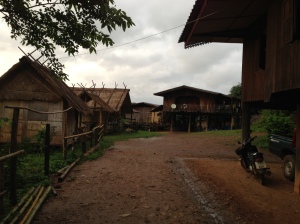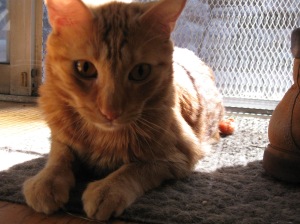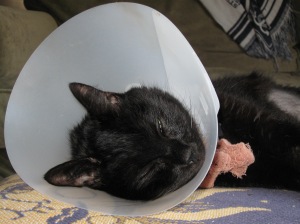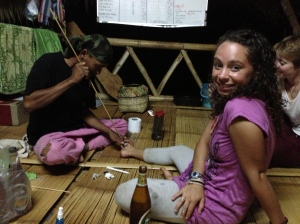This post is the LAST installment in a series about my trip to Thailand to volunteer helping elephants, until I write the book. I do reserve the right to add a thing or two later. Thanks for reading.
A few days ago I had my first dream about Thailand. I think it was only the first because in the six or so months since I’ve returned it’s all been so close to the surface, the elephants have been in my blood.
Now there is distance. And the elephants have sunk in deeper, into the briny depths of my unconscious. Thus the dream.
In the dream I was going back, doing the Thailand elephant trip all again. But even in the dream there was the awareness that it would be completely different. Most of the people in the dream return trip were different. The elephants were different.
I was different.
 The dream was bittersweet. Magical, transformative life experiences—first kisses, first loves, first career triumphs, wedding days, births of children—you can’t do any of these a second time.
The dream was bittersweet. Magical, transformative life experiences—first kisses, first loves, first career triumphs, wedding days, births of children—you can’t do any of these a second time.
And you don’t need to. Each one of these experiences opens you up to have the next magical experience. A bigger one, perhaps. The next one your soul yearns for—definitely.
 My farewell week in the village of Huay Pakoot was difficult. The way I am wired is that I have an acute awareness of the impact a soul separation will have on me—I can feel the loss down to the silty sea floor of my soul, where all the scuttled ships, sunken treasure, and creepy-crawly finned things flutter about. But in the moment I am incapable of expressing this feeling, of even coming close to expressing it.
My farewell week in the village of Huay Pakoot was difficult. The way I am wired is that I have an acute awareness of the impact a soul separation will have on me—I can feel the loss down to the silty sea floor of my soul, where all the scuttled ships, sunken treasure, and creepy-crawly finned things flutter about. But in the moment I am incapable of expressing this feeling, of even coming close to expressing it.
 So there’s a lot of awkward hugging and the human thing of trying to “force a moment”—to stand around snapping pictures and yapping “goodbye” to the people and the elephants and my brain already forming phrases that it can’t wait to whip out on people later like “life-changing trip” and “soooo amazing” with my eyes bulging and what feels like clown make-up on—nothing can “sell” the joy of my experiences better than some painted on eyebrows, I guess.
So there’s a lot of awkward hugging and the human thing of trying to “force a moment”—to stand around snapping pictures and yapping “goodbye” to the people and the elephants and my brain already forming phrases that it can’t wait to whip out on people later like “life-changing trip” and “soooo amazing” with my eyes bulging and what feels like clown make-up on—nothing can “sell” the joy of my experiences better than some painted on eyebrows, I guess.
 Needless to say, these efforts fell short. And added to my gloom when doing my farewells.
Needless to say, these efforts fell short. And added to my gloom when doing my farewells.
This is why I’ve had to write about it. Why I needed to. And though writing has had the advantage of more precision, analysis, and reflection—it too falls short. I don’t like writing this post. It was hard for me to get around to writing it—I put it off because I hate saying goodbye and I’m afraid of not “getting it right”—of not honoring the elephants, the people, and the experiences in the way they deserve.
I woke up from the Thailand dream feeling sad more than anything. I wish I could do the magic a second time. I wish I didn’t have to say goodbye.
The last hike with the baby elephants in Huay Pakoot occurred in the middle of the week. After it was over I wanted a do-over—I just wasn’t prepared to detach yet. I stared at Lulu hoping that sparks would fly between us, I guess. I couldn’t believe I might not ever see the babies again, that I might not know how Lulu turned out.
The goodbyes to the fellow volunteers was drawn out because most of us had a few days to spend in Chiang Mai before we went our respective ways. Chiang Mai was a lovely, friendly city but there was something off about the few days I spent here with the other volunteers. The connection was different away from the village, away from the everyday activities that we shared in Huay Pakoot.
Have you ever gone to a particularly amazing party—a really brains-blowing bash where everyone gets properly drunk and happy and everyone hooks up and it’s all laughter and camaraderie and all your quarters shots are swishes and you feel like every single person there has just become a best friend?
Then you wake up in the sun-blasted, brimstone-and-hangover morning—the time when you are good and ready to drag your ass home, and there’s that guy—that guy—who reaches for a warm beer, maybe wedged in one of the couch cushions, and you hear the pop top opening…
Psshhh.
—And you think, That’s the sound of someone who doesn’t know when it’s time to go home. The sound of someone trying to do the magic a second time. (With parties, that guy used to be me.)
Hanging out with the other volunteers in Chiang Mai was fun, but it felt like the party was over. And it was.
Before Chiang Mai there was an actual goodbye party at Base Camp. For the most part the party was as great as the party I described above. The best part for me was hanging out with Singto, the lead mahout, for a little while, and saying goodbye to him.
“You good friend,” Singto said to me. His huge smile could flip over tractor-trailer trucks. “Here, keep this.”
He handed me his scarf. To keep.
In his world, I just think it was a simple gesture and a gift of friendship. I don’t think he gets the Western definition of the transfer of an article clothing from star to fan. But I sure did.
I worked in Hollywood for 20-plus years and I could care less about Tom Cruise’s autograph or a Sandra Bullock sighting or Robert Downey, Jr.’s gloves that he wore in Ironman 4—Let’s Do the Same Crap Again.
I admire these people as actors and it’s nice that they’re beautiful, but Singto takes care of elephants and has a pipeline to their souls.
To me, he’s a star.
He handed me the scarf and he said this to me (I’m keeping the broken English for accuracy): “Mike… I see you hike with elephant every day. You love elephant. You make good mahout.”
I felt a lump in my throat. I couldn’t talk—I had no words.
Saying goodbye to the elephant Thong Dee was difficult, but I guess I was in a better place when it occurred. I didn’t try to force a moment or try to do anything but be present and be with her.
Thong Dee is in her mid-50’s and most likely in the waning years of her life. I don’t know if I’ll ever see her again—even if I try to do the magic a second time.
There was one glorious moment during this last visit with her. She was on top of a ridge foraging and I was standing below her on the steep incline when she shifted and banked over me like the mammoth mother ship she is. She stepped gingerly down the incline, close enough that I could feel her musky breath and I could get one last impression of how huge and yet how quiet an elephant really is.
For once the staff person didn’t chase me away. Generally we are not allowed within a couple of feet of an elephant. Maybe because the staff person knew that this was my last time, and knew that I loved Thong Dee in particular, she didn’t interfere.
Thong Dee halted her descent for a moment, pausing, still. Elephants are slow and deliberate and do everything at their own pace, but even beyond that, there is no creature that I know of that can milk a pause like an elephant—and the last creature you would expect to be at home in a pause. It would be like if you encountered a giant out of some childhood fairytale—a giant holding a big club in a jungle on a hot, still day and you locked eyes with it… Would you expect it to just stand there, throwing a shadow over you like an overcoat? Or would you instead expect it to clomp after you, swinging the club and trying to squish you under its foot?
Thong Dee, all four wrinkly tons of her, just stood there. We locked eyes. She seemed to be mulling me over. There was a pause and then a pause after the pause.
I like to believe there was some language of the soul being transmitted in that moment. The pause was certainly long enough to speak volumes.
And then she trundled off into some heavier brush, and I saw her backside swallowed up by the jungle.
The last amazing thing I saw on the last hike in Thailand was this:
… a nest of baby birds.
They were hidden a few feet off the path, huddled in the dark in a hollowed-out bamboo tree.
I know I can’t “do the magic” in Thailand a second time. But now I do get to work with a soul (mine) that has had an elephant-sized expansion—so whatever is next for me will likely be on the big side.
For what this journey has meant to me… I have no words left, except this one:
Goodbye.






















































